Small businesses form the backbone of our economy, but accessing the right financing options can often be a daunting challenge. One of the most common solutions for entrepreneurs is Small Business Administration (SBA) loans, specifically the SBA 504 and 7(a) programs. Understanding these loan types and their differences is crucial for business owners, brokers, and credit unions navigating commercial lending.
SBA 504 Loans: Fueling Fixed Asset Investments
The SBA 504 loan program is designed to provide long-term, fixed-rate financing for significant fixed assets, such as real estate or equipment. Key features include:
- Purpose: Targeted at businesses looking to expand or modernize by acquiring property, buildings, or machinery.
- Loan structure: A typical SBA 504 loan consists of three parts:
- A commercial lender provides 50% of the total financing.
- A Certified Development Company (CDC) funded by the SBA covers up to 40% of the total.
- The borrower contributes a 10% down payment.
Advantages: Fixed interest rates and lower down payment requirements make 504 loans attractive for businesses seeking stable, long-term growth​.
The SBA 504 loan program is an exceptional financing option for businesses aiming to invest in long-term assets like real estate or equipment. Its unique structure, combining contributions from commercial lenders, Certified Development Companies (CDCs), and borrowers, creates a cost-effective pathway for expansion and modernization. With fixed interest rates and lower down payment requirements, the 504 loan offers stability and affordability, empowering businesses to build a solid foundation for sustained growth. For companies focused on securing their future through strategic asset investments, the SBA 504 loan is a robust and reliable solution.
SBA 7(a) Loans: Flexible Financing for Business Needs
The SBA 7(a) loan program is a more versatile option that can be used for various purposes, including working capital, debt refinancing, and business acquisitions. Key highlights:
- Purpose: Broader applicability than the 504 loan makes it suitable for diverse business needs.
- Loan structure: 7(a) SBA-approved lenders typically provide loans. The SBA guarantees a portion of the loan, reducing the lender’s risk.
- Advantages: Flexibility in use and higher loan limits (up to $5 million) provide businesses with greater financial maneuverability.
The SBA 7(a) loan program is a dynamic and adaptable financing solution for businesses with diverse needs. Whether funding day-to-day operations, purchasing, constructing, or refinancing real estate, consolidating debt, or acquiring another company, the program’s flexibility and high loan limits provide a powerful tool for entrepreneurs seeking growth and stability. By leveraging the SBA’s guarantee, lenders can confidently support businesses with tailored solutions that align with their financial objectives. For companies aiming to thrive in a competitive landscape, the SBA 7(a) loan offers the versatility and resources needed to achieve their goals.
Choosing the Right Loan: Key Considerations
When deciding between SBA 504 and 7(a) loans, businesses should consider:
- Use of funds: 504 loans are ideal for purchasing fixed assets, while 7(a) loans provide one loan for various uses.
- Loan amounts: 7(a) loans generally offer more substantial funding, making them suitable for more significant financial needs.
- Interest rates: Fixed rates in 504 loans provide stability, whereas 7(a) loans may have variable rates.
- Eligibility: Both programs have specific requirements, including being a for-profit entity and meeting SBA size standards.
Choosing between SBA 504 and 7(a) loans requires an understanding of your business’s needs and financial goals. While the 504 loan is best suited for fixed asset investments with long-term stability, the 7(a) loan offers greater flexibility for diverse business expenses and more significant funding needs. Businesses can align their financing decisions with their growth strategies by carefully evaluating the use of funds, loan amounts, interest rates, and eligibility requirements. Selecting the right loan is about meeting immediate financial needs and building a foundation for sustainable success.
How CBS Facilitates Access to SBA Loans
Cooperative Business Services (CBS), helps credit unions and borrowers navigate SBA lending. Here’s how CBS supports the process:
- Expertise and guidance: CBS gives credit unions the underwriting expertise to evaluate SBA loan applications.
- Speed and reliability: CBS ensures deals are closed under agreed terms and within expected timelines, enhancing trust among borrowers and brokers.
- Customized solutions: CBS helps credit unions deliver tailored financing solutions by assessing borrower strengths, cash flow, loan-to-value, and industry intel.
Building Strong Relationships
CBS’ commitment to fostering relationships with credit unions, borrowers, and brokers is key to its success. Through its role as a trusted intermediary, CBS empowers credit unions to:
- Offer competitive loan structures and interest rates.
- Ensure rigorous risk management while maintaining flexibility.
- Strengthen community ties through localized lending.
Partner with CBS for SBA Lending Success
Decoding the differences between SBA 504 and 7(a) loans can be challenging, but proper guidance ensures that borrowers, brokers, and credit unions make informed decisions. CBS is a trusted partner in SBA lending due to its expertise, reliability, and commitment to tailored solutions.
Ready to explore SBA loan options or expand your credit union’s lending capabilities? Contact CBS today to learn how we can help your business or credit union thrive in the competitive lending market. Let’s build stronger communities together through innovative, impactful financing.
Disclaimer. The information and data contained in this multimedia content (the “Content”) are provided for informational purposes only, and do not necessarily represent the views or opinions of Cooperative Business Services, LLC (“CBS”). The Content, and the appearance of the Content on, by or through CBS’ website, email, or technological infrastructure does not constitute an endorsement by CBS, its affiliates, owners, officers, directors, or employees (or their successors and/or assigns). Information in the Content cannot be relied upon by any recipient for any business, legal or financial decisions.




